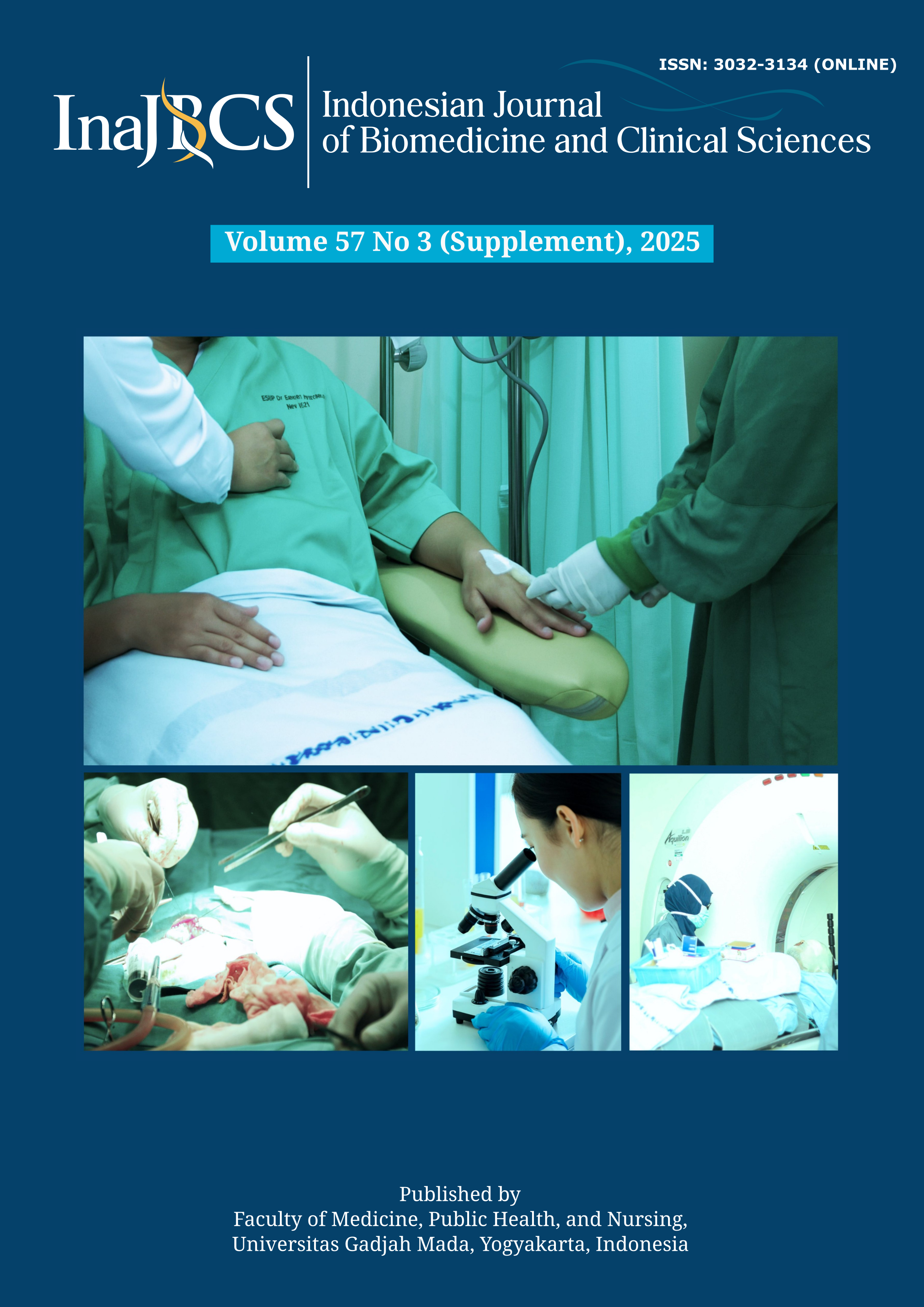Perioperative polycythemia vera in a patient undergoing TURP surgery: A case report
Abstract
Polycythemia Vera (PV) is a chronic myeloproliferative neoplasm (MPN) characterized by abnormal hematopoiesis, with hemoglobin and hematocrit levels >54%. Thrombosis and bleeding are common, and post-TURP bleeding due to coagulation abnormalities requires special monitoring. A 71-year-old man presented with difficulty urinating and bleeding gums. He had a history of an old inferior myocardial infarction. Vital signs were normal. Laboratory results on June 18, 2025 showed hemoglobin of 21.0 g/dL and hematocrit of 65.3%. On June 19, hemoglobin was 18.1 g/dL and hematocrit 56.6%. On June 21, hemoglobin 18.1 g/dL and hematocrit 56.4%. The JAK2 V617F mutation was detected on June 20, 2025. Abdominal ultrasonography on June 18 revealed prostatic hypertrophy, cystitis, right parenchymal kidney disease with mild left nephritis, simple left renal cyst, and mild splenomegaly. Phlebotomy of 250 ml/24 hours was performed three times through a large vein with 250 ml rehydration using 0.9% NaCl. Aspirin 80 mg/day was postponed and continued postoperatively. After six phlebotomies, haemoglobin decreased to 15 g/dL. From July 5 to July 7 2025, hemoglobin and hematocrit levels gradually declined 18.1 g/dL and 59.3%; 17.2 g/dL and 55.2%; and 16.4 g/dL and 52.1%, respectively. More than 90% of PV patients show the JAK2 V617F mutation. Patients aged >60 years and/or with a history of thrombosis require low-dose aspirin (81–100 mg/day), periodic phlebotomy, and cytoreductive therapy to maintain hematocrit <45%. Periodic phlebotomy and rehydration reduce the risk of thrombosis and bleeding. ACC/AHA guidelines recommend continuing aspirin perioperatively, especially in cardiovascular disease, unless surgery requires discontinuation. It should be resumed promptly after surgery. Timely multidisciplinary management in the perioperative period is essential to control symptoms and improve survival.






